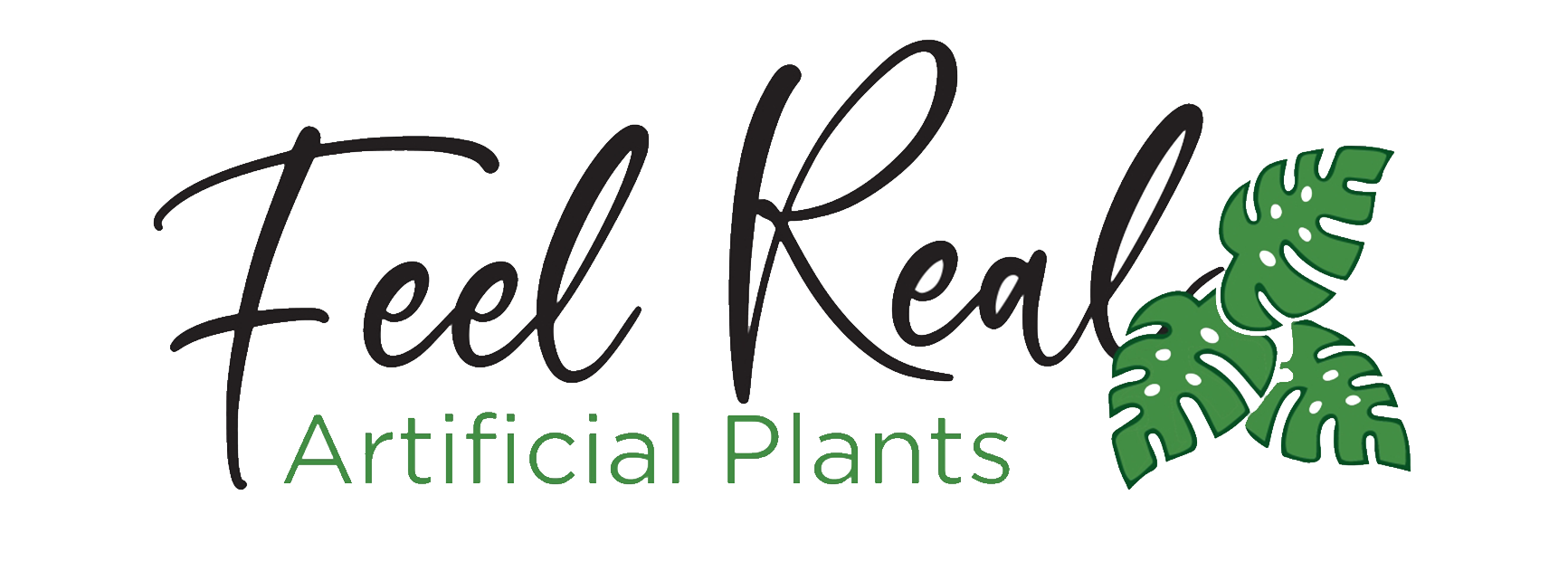As the artificial plant industry continues to evolve, outdoor artificial plants have gained significant popularity in both residential and commercial landscaping. Selecting the right wholesale products is not only about keeping up with demand but also about ensuring profitability, customer satisfaction, and long-term success. Below are eight critical factors distributors should consider before making wholesale purchases of outdoor artificial plants.
1. UV Resistance and Durability
Why It Matters:
Outdoor artificial plants are continuously exposed to harsh sunlight, wind, rain, and other environmental conditions. If the plants lack UV resistance, they can fade quickly and lose their vibrant colors, negatively affecting their longevity and aesthetic appeal.
What to Look For:
When sourcing artificial plants, ensure they are made using high-quality, UV-stabilized materials such as polyethylene. The most effective UV resistance is achieved when UV inhibitors and stabilizers are infused directly into the materials during production, rather than being applied as a surface treatment. This process ensures that the UV protection is embedded throughout the plant, providing long-term resistance to fading and degradation from sunlight.
Actionable Tip:
When selecting a supplier, prioritize those who can provide detailed information about their UV stabilization process and inquire about UV resistance ratings. This information ensures that the artificial plants you source are engineered for outdoor environments and will retain their appearance and structural integrity over time. Additionally, ask for certifications or test results that verify the plants’ UV resistance levels to ensure they meet the durability expectations of your end market.

2. Market Trends and Customer Preferences
Why It Matters:
Failing to align your product offerings with current market trends can result in overstocked inventory and missed sales opportunities. Consumer preferences in design, style, and application shift over time, and staying ahead of these trends is essential for maximizing sales.
What to Look For:
Conduct regular market research to track emerging trends in outdoor décor, especially within key demographics such as urban planners, commercial property managers, and homeowners. In the U.S., trends favor low-maintenance greenery, biophilic design, and the use of large statement pieces in commercial spaces. European countries, meanwhile, emphasize sustainability, eco-friendly materials, and lifelike, high-quality artificial plants integrated into minimalist, contemporary designs. Ensuring your inventory reflects these preferences will help you appeal to a wider range of clients in both regions.
Actionable Tip:
Regularly survey your clients or gather feedback to understand their evolving preferences. Tailor your wholesale inventory to meet these demands. Stay informed on artificial plant trends by attending trade shows, monitoring B2B platforms, following social media, and maintaining strong connections with suppliers.

3. Customization and Variety
Why It Matters:
Your customers may have different requirements for their outdoor spaces, ranging from small balconies to large corporate landscapes. Offering customization options and a variety of plant types will make your wholesale business more attractive to diverse buyers.
What to Look For:
Stock a wide range of artificial plants in various styles, including topiary, boxwood, palms, and ferns. Offering customizable products, such as varying heights or different pot options, will allow you to cater to unique client needs.
Actionable Tip:
Ensure that your customization options include a range of sizes, shapes, and foliage types. Offering plants in customizable containers, finishes, heights, and packaging will appeal to a diverse client base looking for tailored solutions.
When assessing a factory’s OEM capabilities for artificial plants, review past project examples, their ability to customize designs, relevant certifications, lead times, and scalability. Make sure they have strong quality control processes and R&D capabilities to ensure product consistency and innovation.

4. Realism and Aesthetics
Why It Matters:
A major selling point of artificial plants is their resemblance to real plants. If your products lack realism, they may fail to meet customer expectations, especially for high-end installations where attention to detail is crucial.
What to Look For:
Source products that closely mimic the natural texture, shape, and color variations found in live plants. Lifelike details such as natural leaf veining, subtle color gradients, and realistic branches can make all the difference in customer perception. Realistic plants not only enhance the overall aesthetic but also elevate your standing as a quality distributor.
Actionable Tip:
Request samples to evaluate the level of realism. Compare multiple suppliers to ensure you’re getting the most lifelike products for your customers. Focus on selecting suppliers who use high-quality materials, such as silk and polyethylene, which mimic the texture and appearance of real plants. Evaluate the craftsmanship of details like leaf veins, color gradients, and natural shapes.

5. Supplier Reputation and Reliability
Why It Matters:
Your business depends on the quality and consistency of your suppliers. A reliable supplier will deliver products on time, maintain consistent quality, and offer excellent customer service, all of which are critical to your success.
What to Look For:
Research the reputation of potential suppliers by reviewing their catalog and certifications, visiting their website or Alibaba page, and assessing the professionalism of their communication. Look for suppliers with a track record of reliability and strong communication skills.
Actionable Tip:
When establishing partnerships with suppliers, focus on industry certifications that demonstrate quality and reliability. Look for suppliers with ISO 9001 certification, which ensures a strong quality management system, and ISO 14001 for environmental management standards. For products requiring UV resistance or fire retardancy, ask for specialized certifications, such as REACH, to confirm compliance with safety and performance standards. Furthermore, prioritize suppliers who offer flexibility in terms of shipping and inventory management and who are willing to collaborate on addressing any issues that arise during the procurement process.

6. Quality Assurance and Product Consistency
Why It Matters:
Inconsistent quality between product batches can lead to high return rates, increased customer dissatisfaction, and long-term damage to your brand’s reputation. Ensuring consistent product quality is critical for maintaining trust with your clients.
What to Look For:
Prioritize factories that use high-quality, UV-resistant materials to ensure longevity, especially for outdoor products. Check for realism in details like color accuracy, texture, and shape. Consistency across production batches is essential, so verify that size, color, and finish remain uniform. Ensure the factory has rigorous quality control processes, with inspections at each stage of production, and compliance with safety standards such as fire retardancy or environmental certifications like REACH. Durability testing is also crucial to confirm that the plants can withstand long-term use without degrading.
Actionable Tip:
Request detailed information on quality control procedures and, if possible, visit the supplier’s production facility to ensure consistency and quality. Develop your own internal quality assurance protocol, including spot checks upon product arrival. This ensures that you can catch and resolve any quality issues before they reach your customers.

7. Bulk Pricing and Profit Margins
Why It Matters:
In the competitive artificial plant industry, your profitability hinges on your ability to secure the best pricing while maintaining product quality. Pricing pressures are inevitable, but the real art lies in finding a balance between lowering costs and delivering a high-standard product. Achieving this ensures you remain competitive while keeping customers satisfied with the quality they expect.
What to Look For:
Negotiate bulk pricing with your suppliers. Ensure that the cost savings from bulk purchases do not come at the expense of product quality. Focus on volume discounts and tiered pricing to reduce costs. Establish long-term partnerships to secure better rates, and negotiate favorable payment terms, such as early payment discounts or extended deadlines, to further enhance savings. Additionally, explore ways to optimize logistics and shipping expenses while holding suppliers accountable for quality through clear agreements on standards and warranties.
Actionable Tip:
Take into account your projected sales volume and customer demand to make informed purchasing decisions. Negotiate different pricing levels for varying order quantities, ensuring that you benefit from better rates as your volumes increase. Leverage volume purchases, long-term commitments, and optimized shipping strategies to achieve better pricing without compromising quality.

8. Logistics and Shipping Considerations
Why It Matters:
Logistics play a critical role in wholesale distribution. You need to ensure that the products are shipped efficiently and arrive in excellent condition. Poor packaging or delayed shipments can lead to damaged goods and dissatisfied customers.
What to Look For:
Choose suppliers with a solid logistics infrastructure. Ensure that the packaging used is durable enough to protect the plants during transportation, and inquire about delivery times, shipping costs, and damage policies. Focus on both protective and space-efficient packaging, using sturdy materials like bubble wrap and foam inserts to prevent damage. Additionally, work with suppliers that comply with labeling and material safety standards to avoid customs delays, and explore eco-friendly packaging options for a competitive edge in environmentally-conscious markets.
Actionable Tip:
Consider partnering with suppliers that offer eco-friendly packaging, as this can be a valuable selling point to environmentally conscious clients. Consolidate shipments to minimize costs and work with experienced freight forwarders to manage customs clearance efficiently. Make sure that you have clear policies in place for managing returns and damaged shipments.

Conclusion:
The wholesale purchase of outdoor artificial plants requires careful consideration of multiple factors. From ensuring UV resistance and realism to maintaining strong supplier relationships and logistics efficiency, each decision impacts your bottom line and customer satisfaction. By thoroughly evaluating these eight factors, you can make informed purchasing decisions that not only meet market demand but also drive long-term success for your business.


